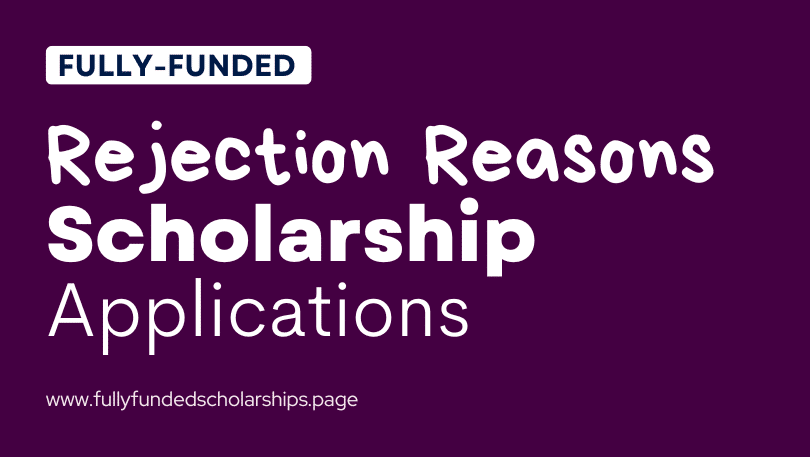
Scholarship applications can be one of the best ways to pay for college and make your dreams of earning a degree come true. However, there are many reasons why scholarship applications get rejected. To increase your chances of success, it’s important to understand what is causing your application to be rejected in the first place.
Poorly Written Application
One of the most common mistakes that scholarship applicants make is sending in sloppy or incomplete applications. Good grammar and spelling are paramount when completing a scholarship application, as a well-written application will stand out from the rest. Make sure you take the time to proofread and double-check your information before submitting it; this extra attention may be just what you need to boost your chances of receiving an award.
Not Meeting Eligibility Requirements
Every scholarship has different eligibility requirements, such as having a certain GPA or majoring in a specific field. Not meeting these criteria can result in rejection for the recipient. Before applying for scholarships, you should make sure that you meet all of the qualifications necessary to receive an award so that you don’t waste time applying when ultimately you won’t be eligible anyway.
Not Enough Financial Need
When reviewing applications, sponsors often consider their applicant’s financial need level before choosing who will receive money. Financial need can mean anything from being unable to pay tuition bills in full or not having enough funds for everyday living expenses while attending school full-time. If they determine that other applicants have greater financial needs than you, they may reject your application despite its merits otherwise.
Inaccurate Information or False Claims
Providing inaccurate or false information on an application will likely result in it getting rejected immediately—it is never wise to lie on scholarship applications! Additionally, inflating experiences or awards on the resume could cause organizations to disqualify your application outright due to concerns about dishonesty and deception. Be truthful and honest whenever possible, as providing accurate information helps ensure that organizations get an accurate picture of who you are so that they can make informed decisions about awarding scholarships and grants.
Applying for scholarships can seem like a daunting task at first but with preparation and understanding of why scholarships get rejected, it doesn’t have to be overwhelming! The key takeaway here is: always check requirements thoroughly before making any commitment; maintain accuracy and honesty when filling out forms; and present yourself in the best light during review periods by crafting carefully written applications that convey both your need and merit accurately!

